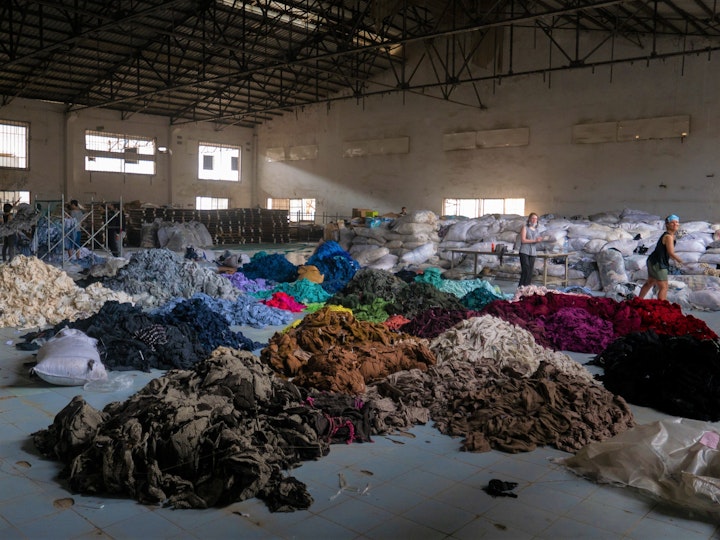Old habits die hard: fighting fast-fashion
Despite breakthrough new sustainable materials, greenwashing is making sustainable fashion more inaccessible. Dr Irene Garnelo-Gomez talks about the importance of marketing sustainable fashion well.

What is fast fashion?
Fast fashion refers to clothes that are cheaper and generally of lower quality. Often, people buy more than they need, influenced by trends. Production is fast, the life of the piece of clothing is short. The consequences? The clothing breaks. A replacement will likely be needed - with more water wasted and more pollution created - and the life of that piece of clothing ends. Say goodbye to selling damaged goods or donating it to a charity shop! As a result, thousands of tons of fashion items end up in landfill in the UK every year.
How to reduce fast fashion
There are mainly three solutions to reducing fast fashion:
- People buying less fashion items.
- People buying more second-hand clothes.
- People investing in sustainable brands.
Focussing on the third option, the key is to buy less and of higher quality to ensure things last. Buy clothes that you could use for longer and, in the case of kids clothing, that could be passed onto other children. This was a much more common practice in the past, and some brands are now embracing it again. And if the clothes break, try to repair them or request the brand repair it for you, if that is an option.
The new technology fighting fast fashion
Companies and start-ups such as the Finnish Infinited Fiber are developing innovative and sustainable solutions for the fashion market. In Infinited Fiber’s case, they have developed a material made of old textiles that would otherwise be sent to landfill or burned. These materials are slowly trickling down into mainstream outlets, being used by big companies such as Zara, but there is still a way to go before they are integrated into our everyday fashion.
The obvious downside of sustainable clothing is the price. Ethically sourced materials tend to be more expensive, as the production process follows fair labour practices and standards (although if you buy less often, the impact on your budget may be less significant).
Marketing sustainable fashion
This is why it is so important to understand how to market sustainable fashion. Particularly because the rise of greenwashing and other types of ‘colour washing’ practices make it even more difficult for consumers to understand what brands are really sustainable. Thus, despite the new technologies, the whole process of buying sustainably is becoming less accessible and more time-consuming.
Together with Dr Anastasiya Saraeva and Lucy Hurwood, I am working on a project focused on understanding what gets people to engage in sustainable behaviours in the fashion industry. Do consumers fully understand the difference between sustainable and fast fashion? Or the advantages of buying sustainably? How are sustainable fashion consumers? And what motivates them? What can we do to make sustainable fashion more accessible? These questions are driving our research, so the solutions created by Infinited Fiber and other innovative firms create the impact they deserve.
You might also like
Twitter in turmoil: Reputational disaster or transformational opportunity?
Could a four-day working week be the UK economy’s silver bullet?
New research: Does work mean something different to men and women?
This site uses cookies to improve your user experience. By using this site you agree to these cookies being set. You can read more about what cookies we use here. If you do not wish to accept cookies from this site please either disable cookies or refrain from using the site.